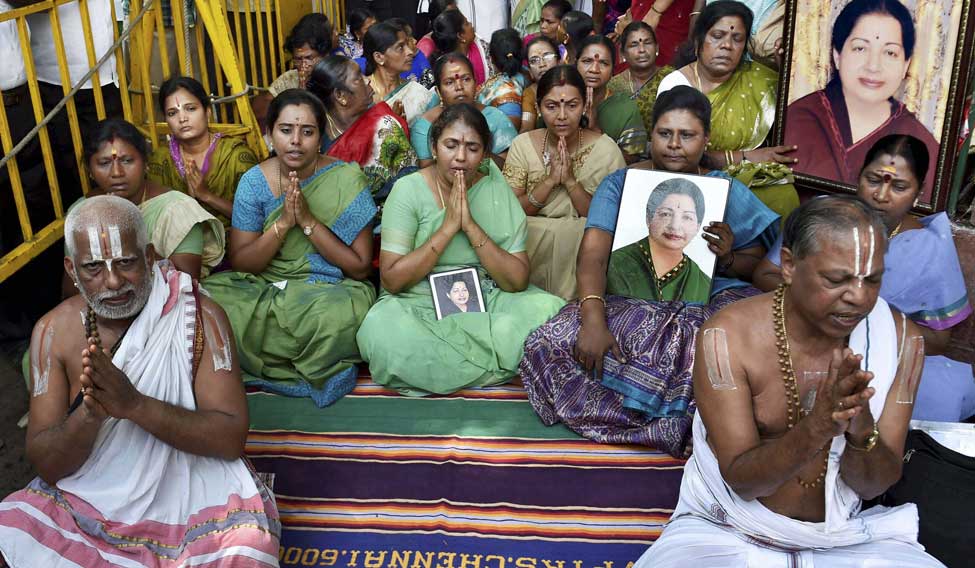It has been three weeks since Tamil Nadu Chief Minister Jayalalithaa has been admitted to the Apollo Hospital on Greams Road, Chennai. Three weeks is a long time in medicine and politics, but the public is still in the dark regarding her illness, her present condition or her recovery. Only a Robert Langdon can decipher the facts in the medical bulletins brought out by the hospital. Conspiracy theorists and rumour-mongers are having a field day, with very little official information trickling out.
The first press release on September 23 has been very forthright and benign—it gave us the picture of a patient with a minor illness, on the road to recovery. The next bulletin, issued the very next day after the first one, was equally rosy. Then it was complete silence for five days, with rumours suggesting that she was seriously ill and that proxies were running the affairs of the state. Apollo Hospital came out with a vague press release on September 29, which was more of a political message to pacify the party cadres than a medical bulletin on the health of the patient.
Again there was a gap of five days, before another press release came out. But, during this time, multiple media outlets had reported that a London-based intensivist Dr Richard John Beale has been brought to Chennai as a consultant. Now, people began to understand the gravity of the situation and started expecting the worst. News channels were discussing the line of succession and lack of a viable second rung leadership in Jaya’s party.
Deviating from its previous stance, Apollo Hospital issued a more detailed medical bulletin on October 6. The bulletin gave a rough idea of her disease condition, the line of treatment and the panel of doctors treating her. The presence of intensivists suggested that she was critically ill, the term ‘respiratory support’ and presence of respiratory physicians indicated that she had a lung condition, which required some kind of support for breathing and the mention of antibiotics suggested that her condition was probably complicated by an infection.
The subsequent press release two days later was also poignant, with terms like ‘lung decongestion’ being used. A significant aspect of that particular press release was the mention of ‘passive physiotherapy’, which is a type of exercise generally administered to patients who are sedated or not conscious. The press release on October 10 said they were continuing with the same line of treatment, with medical terms like ‘respiratory support’ and ‘passive physiotherapy’ being repeated. “Though respiratory support does not essentially mean that the patient is on a ventilator, the wordings and tone in the successive press releases indicate so. It is most likely that she had pneumonia, which later progressed into Acute Respiratory Distress Syndrome, a lung condition which requires ventilatory support for breathing”, says Dr Mathew Ninan, a respiratory physician who has worked with reputed institutions like Christian Medical College, Vellore.
Acute Respiratory Distress Syndrome is a disease condition that requires prolonged ventilator support. The path to recovery is generally slow, with most patients requiring respiratory support for more than two weeks. The mortality rates are also quite high, though it comes down significantly with the quality of care delivered to the patient. A reputed intensivist, on condition of anonymity, says, “Even though it is technically possible for a patient on ventilator support to communicate with others, it is unlikely that she is reading newspapers or taking informed decisions.” All this leaves us with a pertinent question of whether the people have a right to know about the health status of their elected leaders and who, really, is calling the shots.
Dr Philip Mathew is executive director, Centre for Environment, Sustainability and Health, and assistant professor, Community Medicine, Pushpagiri Institute of Medical Sciences.




